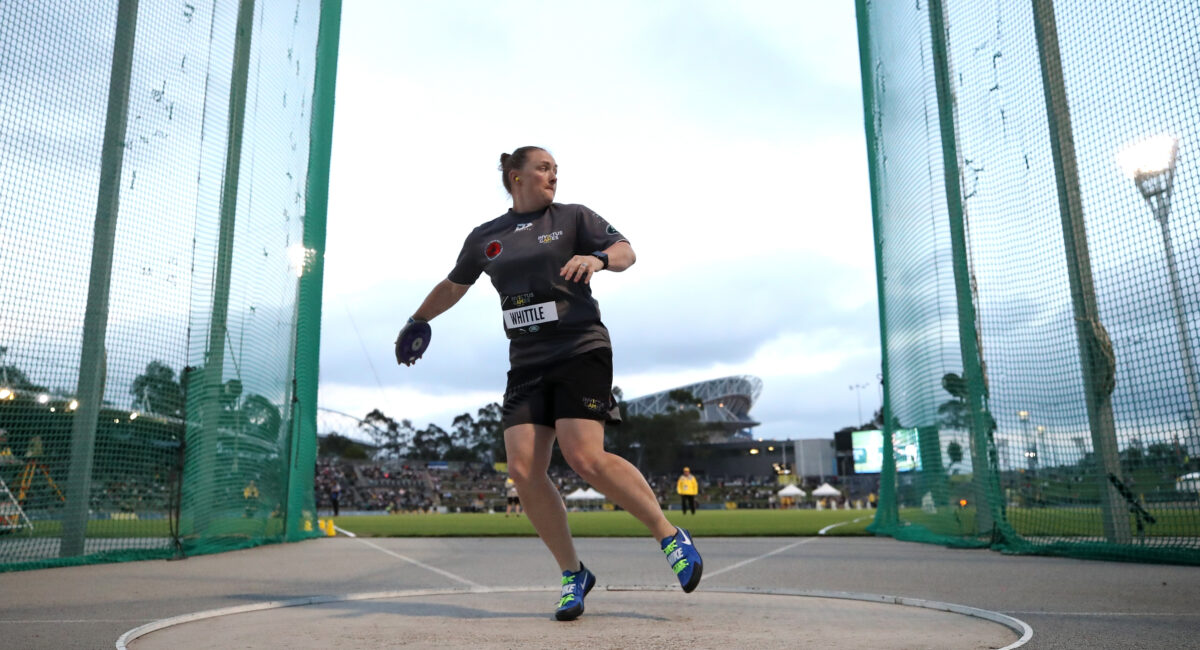Sergeant Kelly Whittle had to adjust her discus and shot put throwing technique because she tore a cartilage in her right hip in Afghanistan.
She hurt her hip pulling a wounded Afghan soldier to safety during combat.
“It was as I was picking him up – I just twisted my hip too much and tore the cartilage clear off the bone,” Whittle said.
“I managed to get him into a vehicle.
“It was quite a long, drawn-out process… but it is what it is,” she added, remembering the stabbing pain in her own body but being focused on getting the Afghani soldier to hospital.
“But that’s why I don’t do the full twist when I throw, just the half. But I can get enough rotation through my body,” she said, having won medals in the two events at the Invictus Games Toronto 2017.
Whittle also hurt her shoulder as she carried out her medical duties on a six-month deployment to Afghanistan’s Bamyan province with the New Zealand Defence Force (NZDF).
They were frantic times. It was a far different kind of ‘hectic’ organising her events for the Invictus Games Sydney 2018 presented by Jaguar Land Rover.
Whittle, the New Zealand team’s co-captain, enrolled in four sports. She has competed in both cycling events (time trial, criterium), five matches of wheelchair rugby, and in between her discus and shot put events on Friday – she played her second match of wheelchair basketball for the Kiwis.
“We’re only a small number (24 competitors from their nation) relatively so we don’t have a dedicated team for each sport,” she said.
The four sports are taking their toll.
“I’m getting tired… going between sports on the same day means recovery is limited. But we’re all soldiering on – that’s what you do.
“But we had a few new team members on the court today for their first game (basketball) and they are buzzing, absolutely buzzing.
“They come up to me saying ‘This is the most incredible experience’. And we were told just before we went on court today (to play USA) that one of our New Zealand runners (Craig Wilson) had won gold over at the track (1500m).
“So that lifted us all tremendously.”
Whittle currently trains other medics in the NZDF and lectures on what it’s like on a tour of duty.[Text Wrapping Break]She has been dealing with PTSD (post-traumatic stress disorder) symptoms but does not want to leave the military.
“I felt I had unfinished business and I can still do my job,” she said.
“Mental health is something that doesn’t stop you, it just tries to restrict you.
“If I can continue to do work at the level I have previously, then I’m happy to stay. I feel very loyal to the NZDF so I’ll stay as long as they’ll have me.
“My body is pretty broken to be fair. I’ve had two hip surgeries, a shoulder surgery. I’m probably staring down the barrel of some more hip operations. I’m 16 years in so over that time you do batter your body.
“But I’ll keep plugging along.”
Then there are the dreams that interrupt her sleep on occasion.
“It’s a hard one. I find when I’m actually most tired is when I do get them,” she said.
“When I’m exhausted, stuff from Afghanistan comes back. It was such a big thing.
“But I was also there in the devastating Christchurch earthquakes so I get some of that coming back too.
“It’s one of those times where you see things. You can’t just desensitise yourself.”
Training and competing in a variety of sports helps a lot.
“For me rugby is my favourite.
“I love basketball but I’m probably more suited for rugby as it’s full throttle.”
